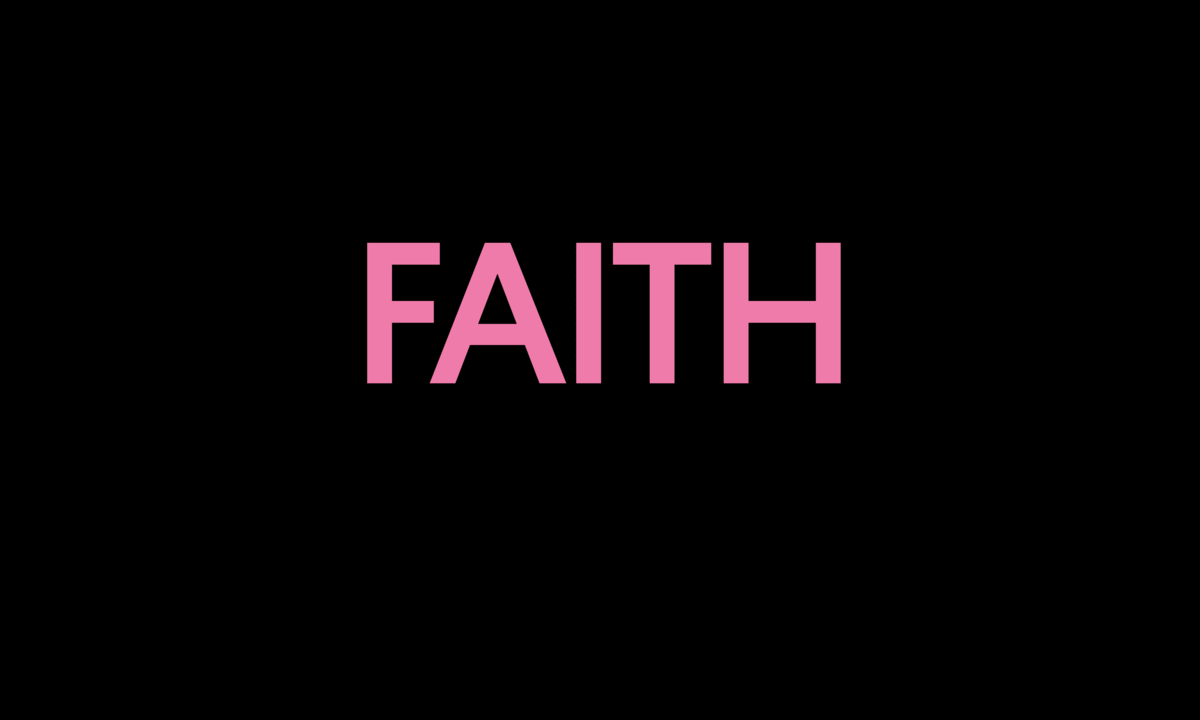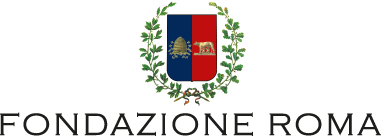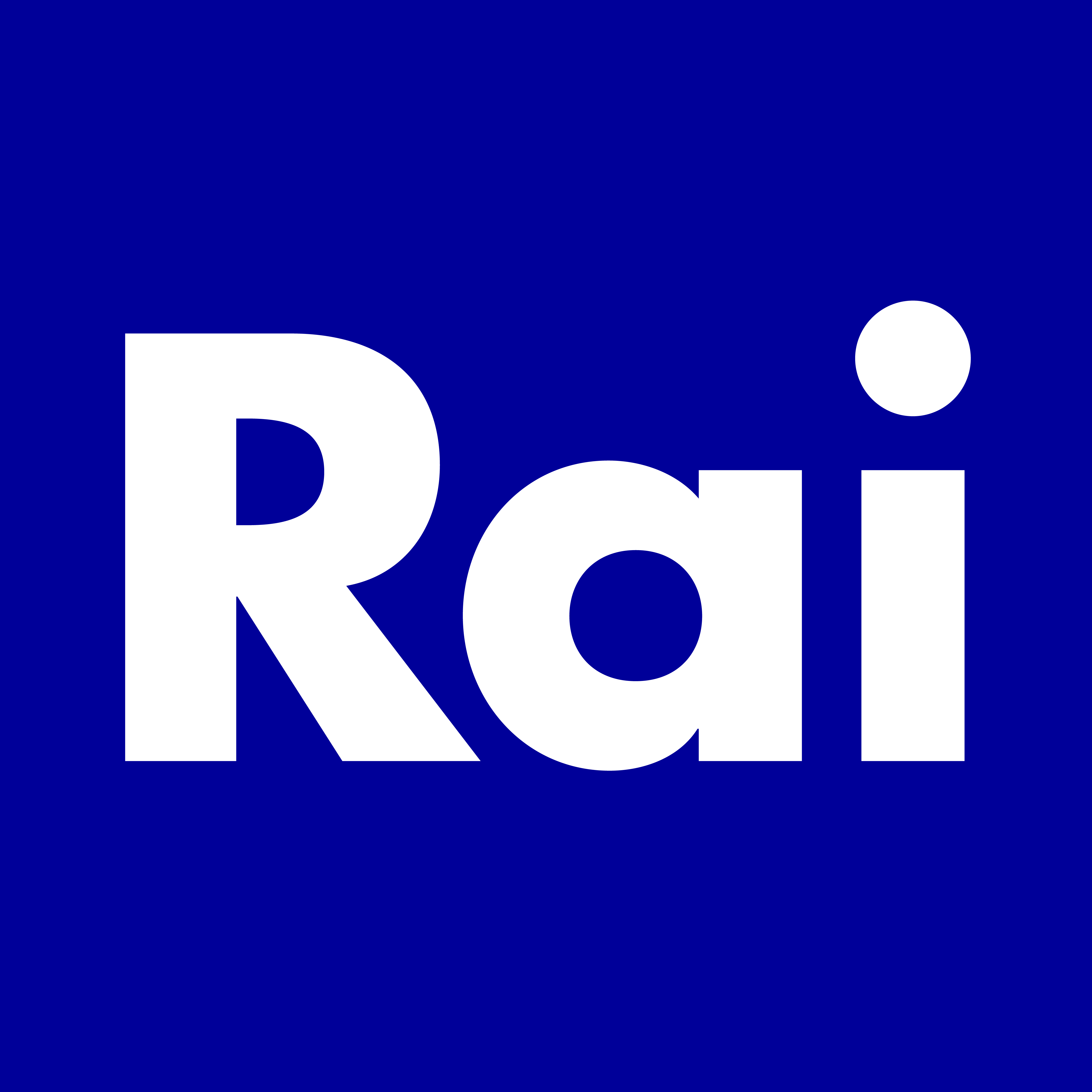ITA/ENG
Raccontare il presente vuol dire riconoscere già all’interno delle sue storie tracce del prossimo futuro: scavare nel reale, portare con sé piccoli gesti di fede e speranza, trovare in un’immagine il senso della nostra Storia; quindi spalancare le porte dell’immaginazione verso paesaggi insondati in cui le tecnologie e il loro impatto culturale tracciano traiettorie inedite per ridefinire e rinegoziare l’idea stessa di creatività . Presente e futuro dialogano in questa settimana del REF2022.
IL PRESENTE
Dopo averci commosso con il suo LOVE, torna al festival, dal 3 al 6 novembre al Teatro Argentina per una co-realizzazione con il Teatro di Roma, Alexander Zeldin. Tra i nomi più acclamati della scena internazionale, artista residente al National Theatre di Londra e al Teatro dell’Odeon di Parigi, il regista inglese chiude con Faith, Hope & Charity la sua The Inequalities Trilogy, trilogia dedicata al tema dell’intimità in tempi di crisi e austerità . Zeldin ci riporta in un centro di accoglienza indagando i temi del lavoro, della casa, della famiglia nell’ambito di una comunità resiliente. La sala comune di un centro di accoglienza, un tetto che perde acqua, una mensa sono gli spazi in cui è ambientato questo nuovo racconto in cui ogni personaggio sembra racchiudere le parole che danno il titolo allo spettacolo: Hazel e i suoi pasti caldi per gli affamati, Mason, allegro ex detenuto impegnato a creare un coro con un gruppo misto di persone sole e povere che si presentano per mangiare la pasta di Hazel, e poi Beth che combatte battaglie giudiziarie per impedire che la figlia Faith venga presa in custodia. Un mondo di banchi alimentari, servizi sociali che chiudono per mancanza di sovvenzioni, spazi dedicati all’ospitalità in cui si svolge la vita di una numerosa parte della popolazione. Un mondo non ignaro all’ironia, all’umorismo e che trova ancora la forza per riunirsi in un inno corale, una consolazione temporanea, un segno di speranza in un’era di austerità .
Un’altra esperienza personale, questa volta ambientata durante la guerra civile libanese del 1975-90, diviene racconto universale in Riding on a cloud del regista, performer e artista visivo di Beirut Rabih Mroué. In scena il 2 e il 3 novembre al MAXXI – Museo Nazionale delle Arti del XXI secolo (con cui l’evento è corealizzato) lo spettacolo vede in scena il fratello minore dello stesso regista, Yasser, con la sua storia e il suo corpo ferito durante la guerra. È lui a narrare la sua stessa vita attraverso oggetti virtuali e fisici: vecchie foto, lettere e pagelle scolastiche ricostruiscono il suo percorso personale interrogando allo stesso tempo gli spettatori sui concetti di presenza e di assenza. Che cosa sono questi oggetti e questi ricordi se non la voragine della Storia stessa, quel punto cieco in cui si nasconde tutto ciò che è non documentato, ascoltato e quindi visibile? Nei sessantacinque minuti di spettacolo il teatro diventa lo spazio per agire sul crinale tra realtà e rappresentazione, documento e finzione.
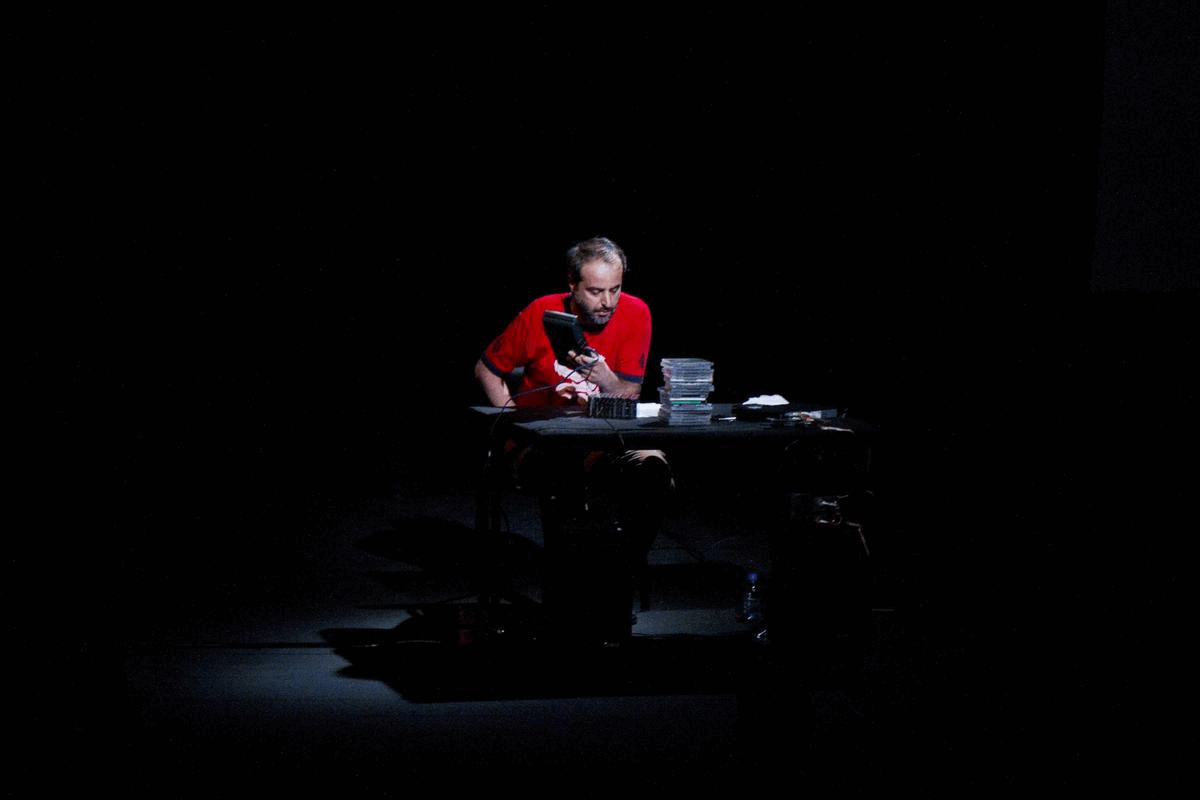
La storia dei risciò Zulù, la loro inventiva, e i loro colori come segno di resistenza al colonialismo sono, invece, al centro di We wear our wheels with pride and slap your streets with color della coreografa sud africana Rabyn Orlin. In scena il 5 e il 6 novembre alTeatro Vascello, lo spettacolo ci porta nelle strade di Durban attraversate dagli sgargianti risciò, i taxi-bicicletta numerosi in tempi di apartheid, divenuti durante la metà del ventesimo secolo attrazione turistica. Considerata sin dagli anni Novanta l’enfant terrible della scena coreografica sud africana, Orlin attinge ai suoi ricordi d’infanzia per scavare, con otto giovani interpreti di Moving into Dance, tra le prime compagnie di danza non razziali a Johannesburg, nelle conseguenze del colonialismo e rendere omaggio a vite altrimenti dimenticate. Ed è una chiave di lettura del nostro presente anche EXTREME/MALECANE, lo spettacolo di Paola Pisciottano/bolognaprocess, vincitore del bando Vivo d’arte realizzato in collaborazione con il Ministero degli Affari Esteri e della Cooperazione Internazionale, in scena per il suo debutto il 4 e 5 novembre al Mattatoio. Su un ring bianco quattro performer accompagnano il pubblico in un viaggio attraverso il Belgio, l’Italia, la Grecia e la Francia proponendo un affresco di teatro e danza per provare a recuperare le origini dei sentimenti di odio e precarietà che attraversano l’intera Europa e le sue più giovani generazioni.
IL FUTURO
Ma giovani generazioni significa anche nuovi strumenti per la creatività , immaginari e spazi per la performance, la musica, il dibattito culturale spesso sconfinanti nella virtualità . È quello che prova ad esplorare Digitalive, la sezione a cura di Federica Patti, che torna con il suo affondo nelle Digital Culture a partire dal 1° novembre al Mattatoio di Testaccio. Con Spleen Machine, il compositore Alex Braga, dà vita ad uno show audiovisivo coadiuvato da un’apposita intelligenza artificiale realizzata in collaborazione con i professori Ringanti e Laudani dell’Università Roma Tre e trasformando in real time i visual della performance live in una serie limitata di NFT in blockchain sostenibile EOS dalla piattaforma A-LIVE che il pubblico riceverà il giorno seguente il concerto come vera e propria estensione e riverbero della performance. Con l’intelligenza artificiale lavora anche l’artista Sofia Crespo che nel suo AquA(l)formings – Interweaving the Subaqueous, esplora i cambiamenti su larga scala dell’ambiente marino causati dalla presenza umana (4 novembre). DISTANTIA è il titolo della nuova performance musicale di Franz Rosati, un progetto multimediale audiovisivo presentato in forma di concerto e costruito a partire dall’assemblaggio di immagini satellitari, visualizzazioni elaborate grazie a modelli di machine learning e spazi virtuali generate dall’analisi di informazioni recuperate dai satelliti (5 novembre) mentre è un affondo sull’informatica quantistica quello dell’artista Libby Heaney che in slimeQore utilizza i dati dei sistemi di elaborazione quantistica a cinque qubit di IBM per (ri)comporre il montaggio video attraverso le immagini, rivelando la realtà stratificata all’interno dei computer quantistici. Ma Digitalive è anche e soprattutto un momento di confronto e dibattito, uno spazio nutrito dalle idee di alcuni dei pionieri della cultura digitale: ne sono esempio XDXD Supernova: generazione elettronica performance e talk dedicato al visionario artista Salvatore Iaconesi, recentemente scomparso (5 novembre), il primo incontro nazionale del network di ricercatori universitari e accademici nel settore delle Arti Digitali ADV Gathering – arti digitali dal vivo (6 novembre), la presentazione del libro L’elettronica è donna a cura di Claudia Attimonelli e Caterina Tomeo e la settimana di restituzione delle performance selezionate dal network Residenze Digitali di cui Romaeuropa è partner e di cui vi parleremo la prossima settimana. Ponte tra passato e futuro è infine, l’1 novembre, ancora al Mattatoio, Missa Sine Verbis di Piotr Orzechowski (Pianohooligan), concerto per quintetto d’archi, quartetto jazz ed elettronica basato sul ri-arrangiamento delle musiche sacre dei più importanti compositori polacchi tra cui H. Gorecki e K. Ponderecki. Sono giustapposti a questi brani improvvisazioni dell’autore per dare vita ad un’esperienza rituale e religiosa basata sull’esperienza interiore degli ascoltatori.
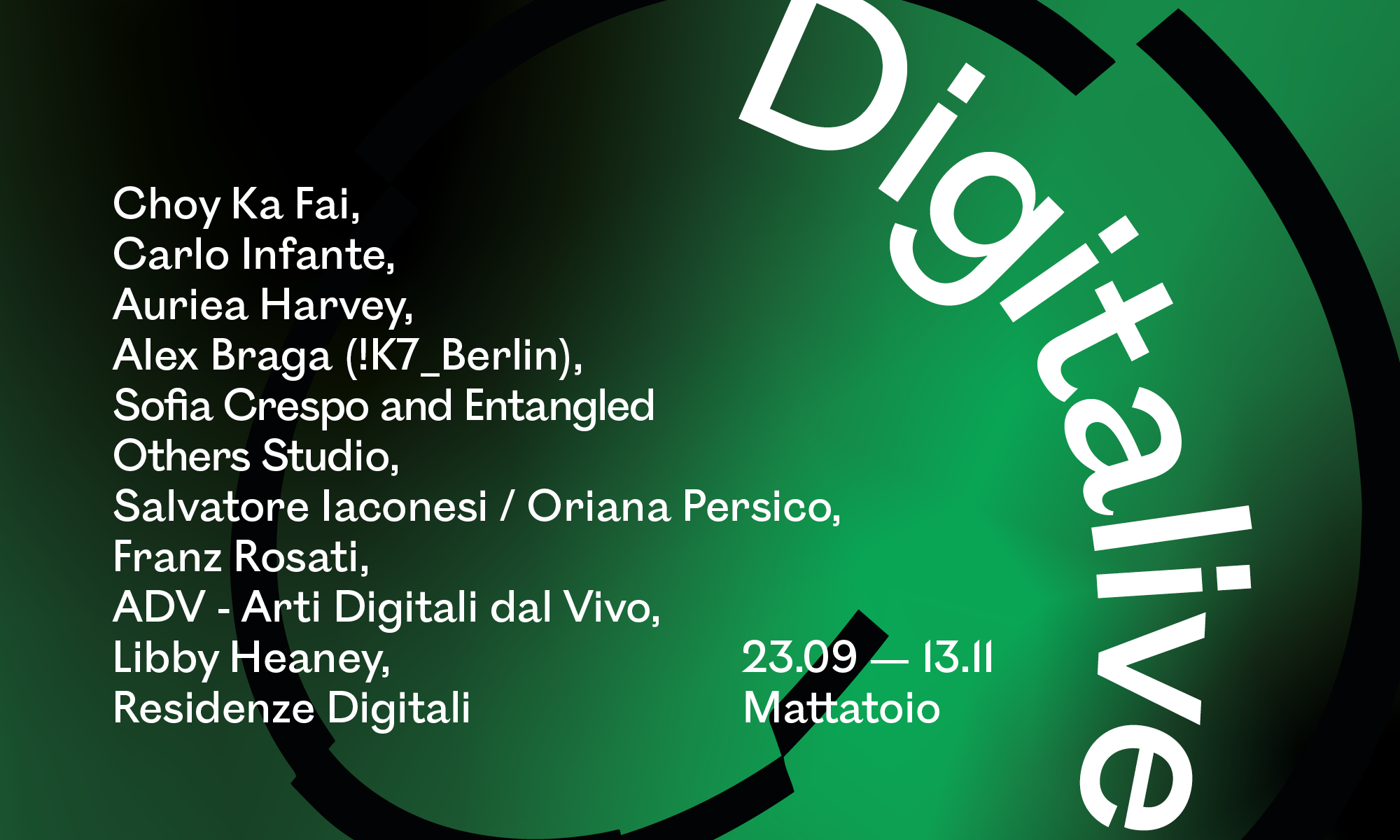
ENG
PRESENT
FUTURE


